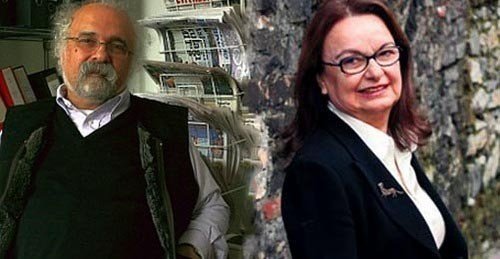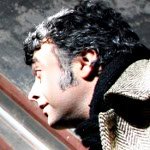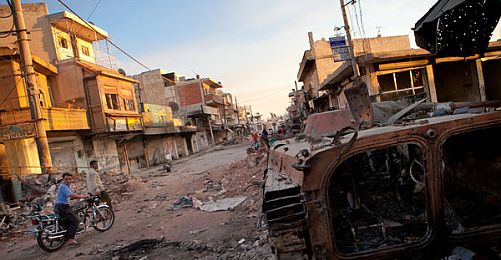Turkey: Everyone is Considered Guilty until Proven Innocent(!)

At the end of an extensive interview conducted by Siren İdemen and Yücel Göktürk in July for Express magazine, the interviewers ask to Orhan Gazi Ertekin, the co-president of Demokrat Yargı Derneği (Democratic Judiciary Association): "For example, you can easily be made a member of Devrimci Karargah (Revolutionary Headquarters)..."
"These are all lottery, of course.", Ertekin responds. "What you need to rationalize all of these is just power. If you have the power, you can make Hanefi Avcı (a high degree ex-police chief, who was known by the torture events, against leftist prisoners.) a member of Devrimci Karargah (Revolutionary Headquarters). What matters is not your actions, but their decisions."
The lottery mentioned by Ertekin, who wrote a book titled "The Judiciary Problem is solved" concerning the amendment of the Constitution and the election in HSYK (The High Council of Judges and Prosecutors), is still being drawn. The system screw the victims over with a final performance: It accuses the victims with offenses which these people would regard as insults.
In the course of these arrests, Kurdish politicians against armed struggle are accused of being terrorist, the journalists who try to reveal the state-within-a-state are accused of acting with those bodies, a chief-of-police known as torturer is accused of being a member of a left organization.
Lastly, 44 more people are arrested with the allegation of being a member of the terrorist organization. Among the detainees, there is Ragıp Zarakolu, a brave publisher whose hands can only be associated with books and pens, who had endeavored to protect the free speech in a silent period after the coup d'etat by publishing the books which nobody dared to publish. There is also Büşra Ersanlı, an academic who never gives in against difficulties and who has always tried to contribute without submitting to any of the two poles.
In order to throw off the current system's mask, which repeats "There are no detainees arrested for crimes of thought, there are terror criminals" or "They are not arrested due to their journalistic activities, but due to other offenses.", it is worth to recall Ertekin's words: "The political offense and the state criminal have a privileged field, for example, right of asylum can be granted. Terror and terrorism is used to discredit the political detainees' rights."
In the same interview, Ertekin conveys the readers the following remark by quoting Gramsci:
"In the East, it is difficult to obtain the power but it is easy to maintain it. In the West, it is easy to obtain the power but difficult to maintain it. (...) There is a reality of power in the East, as there is nothing limiting this power, the one who acquires it becomes capable of high-handed governing."
In the last 10 years, AKP acquired all centers of power including the military. As put by Ertekin's words, there is also an additional fact: "When we think of the bureaucracy of judiciary in Turkey, we think of a structure without a backbone or steady standing, a structure which takes its position each day in view of the political power, a structure which constantly keeps an eye on the political power."
Unfortunately, Ertekin's description of judiciary appears valid for all structures in the country, from head to foot including the academia and the media. And actually, this accurate description is hidden in the Gramsci's quote. If there were not the non-rigid structures subordinated to ruling power, if there were established bodies capable of limiting the power, with the words of Gramsci, the power would not become "capable of high-handed governing" in this country.
The capacity of high-handed governing should be a key concept in the evaluation of judiciary operations in Turkey. Recently, several operations were made and are still being made in Turkey to obtain this capacity. In this respect, KCK operation does not differ from Ergenekon and Balyoz inquisitions.
Through Ergenekon inquisition, the resistance points in the state-within-state are eliminated and replaced. Through Balyoz, the resistance points in the military are disposed and penetrated. Currently, the same pattern is tried against Kurdish movement.
Clearly, the chances of success are zero percent. Because, unlike other operations, this time the addressee, Kurds, are not partners of this system and they do not claim to be one. They have a more radical position; they wish to change this system into a more fair, free and participatory one. They have losses and ideals which the system cannot compensate with money or status.
When this plan -which is impossible to be possible- is completed, the system will not "get further away" with Kurdish issue and "the fire will still be hot". Turkey will again be looking for a solution to this issue, regretting for the lost years... Because...
Because there are two more important problems: Firstly, considering the course of events, the alleged offenses and the arrests do not seem like a "lottery", unlike Orhan Gazi Ertekin's statement mentioned in the beginning. The system seems to know exactly what it is doing.
Secondly and more importantly: in the country which was hoped to start speaking during the preparation of the new constitution, the new waves of arrests impose silence The accusations and arrests are working like "the invisible hammers of the system". Some characters playing the police, relying on their titles as journalist or expert, present the most inconceivable ideas to the public as if they were reasonable.
Arresting the publicly known and respected names, those whom no one would ever think of, helps the totalitarian system in its aim to impose silence: "You keep silent before I intervene". Self- censorship, the most sneaky and dangerous form of censorship, comes into play.
It was said that civil society is enemy to the military. Civil society has now become enemy to the state. And if we can still walk freely in the streets, it is thanks to state's blessing. This is so because, in Turkey, everyone is considered guilty until proven innocent. (BK/HK)
* Translated by Fatma Kurt





